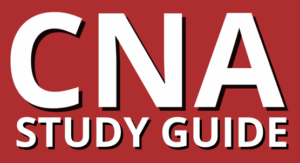CNA Nursing Terminology Glossary
Orthostatic Hypotension
A drop in blood pressure that occurs when standing up, causing dizziness or lightheadedness.
Seizure
A sudden abnormal burst of electrical activity in the brain that may cause convulsions, behavioral changes, or
unconsciousness.
A.M. Care
Morning care routines for patients, including hygiene, dressing, and toileting.
Cholesterol-Restricted Diet
A meal plan low in cholesterol to support cardiovascular health.
Clear Liquid Diet
A diet of transparent liquids used before medical procedures or tests.
Consistent Carbohydrate Diet
A plan with steady carbohydrate intake to help control blood sugar levels.
Full Liquid Diet
Includes both clear and opaque liquids, ideal when transitioning from liquids to solids.
H.S. Care
Nighttime care provided before bed, such as hygiene and comfort routines.
Health Definition
A complete state of physical, mental, and social well-being, not merely the absence of illness.
Low-Sodium Diet
A reduced-salt eating plan to support heart health and blood pressure.
Mechanical Soft Diet
Meals with soft or blended foods for those with chewing or swallowing difficulties.
Body Mechanics
Safe movement techniques to avoid injury while lifting or handling patients.
Chemical Restraint
Medications used to limit a patient’s movement or behavior.
Isolation and Its Purpose
Separating contagious patients to prevent the spread of infection.
Mode of Transmission
How a disease spreads from one individual to another.
PASS
Acronym for using a fire extinguisher: Pull, Aim, Squeeze, Sweep.
Physical Restraint
CNA Nursing Terminology Glossary
Any device or method that limits a person’s ability to move freely.
RACE
Emergency fire procedure: Rescue, Alarm, Contain, Extinguish.
Restraint
Any method that restricts voluntary movement of a patient.
Standard Precautions
Universal infection control measures applied to all patients.
Transmission-Based Precautions
Extra precautions for patients with contagious infections.
Alzheimer’s Disease
A progressive neurological disorder that impairs memory and cognition.
Aphasia
A condition affecting speech or comprehension, usually due to brain damage.
Cheyne-Stokes Breathing
Irregular breathing that alternates between deep breaths and pauses.
Dementia
A decline in mental ability affecting daily living functions.
Elopement
Unauthorized departure of a patient from a care facility.
Palliative Care
Care focused on symptom relief and quality of life for serious illness.
Rigor Mortis
Post-death stiffening of the muscles.
Sundowner’s Syndrome
Evening confusion in elderly or cognitively impaired individuals.
Active Listening
Paying full attention and engaging in communication.
Activity of Daily Living (ADL)
Basic everyday tasks such as eating, bathing, and dressing.
Certified Nursing Assistant (CNA)
A healthcare worker providing basic patient care under supervision.
Chain of Command
The official line of authority in a healthcare facility.
Compassion
CNA Nursing Terminology Glossary
A genuine desire to help those who are suffering.
Do Not Resuscitate (DNR)
An order not to perform CPR if the patient’s heart or breathing stops.
Empathy
The ability to understand and share another person’s emotions.

